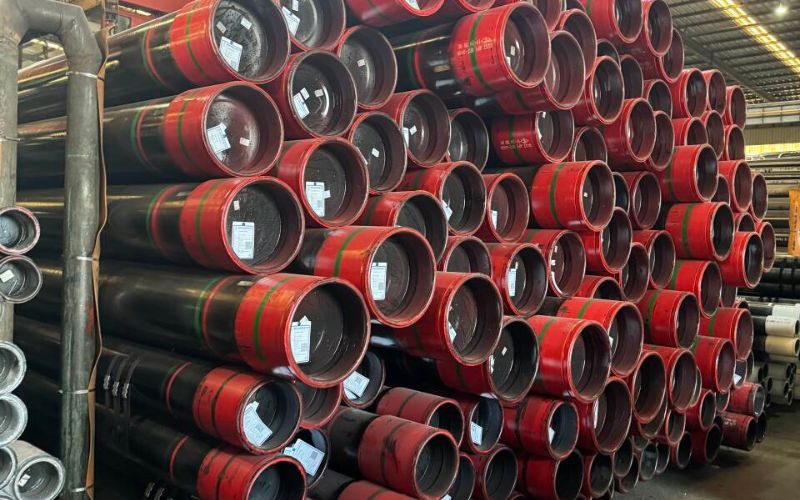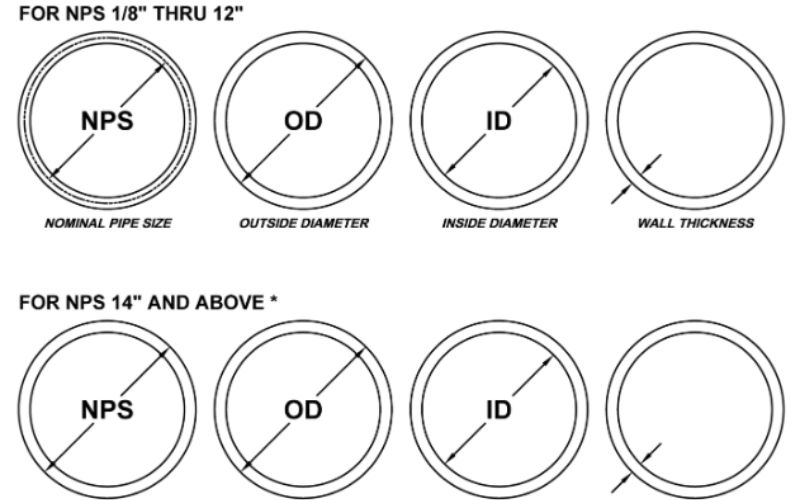When it comes to plumbing, gas piping, or industrial equipment, choosing the right piping is a critical decision as it can affect the operation, security, and service life. Black pipe versus PVC, while being used in a range of applications, gets a lot of attention, and which one is best is often debated. Optimizing equipment for strength, heat resistance, and long-term service requires black pipe, rather than PVC. This paper investigates the rather superior, rugged, and fully reliable choice of black pipe for the most difficult uses, explaining why one is a standard choice for particular applications. The paper also discusses how the other ones are far better for the stated applications.
Introduction to Black Pipe and PVC
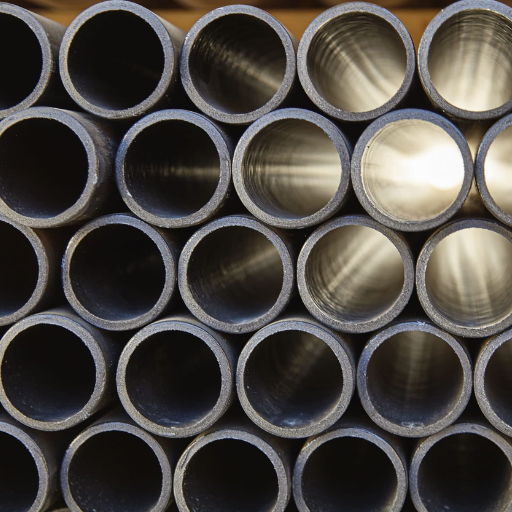
Black pipe and PVC are materials piped that serve different purposes; black pipe is used for gas transportation and piping due to is heat resistance and durability, whilst PVC is used for piping purposes because it is lightweight and easy to install. PVC is resistant to corrosion; therefore, it is used in drainage systems.
Overview of PVC and its Common Uses
Polyvinyl chloride is a type of durable plastic. It is multi-functional, and due to the various uses it has it can be found across different industries. In the construction industry, lightweight PVC is primarily used in pipeline construction, framing windows, and flooring applications. Additionally, PVC is commonly used for electrical insulation, and it can also be found in medical devices, such as IV bags and tubing. Not only this, but PVC is also used in the manufacturing of consumer products, such as credit cards and dough packaging. Remarkably, PVC can also withstand temperatures from being extremely hot to extremely cold, which makes it fantastic for use in homes and industries.
Introduction to Black Pipe and its Applications
Black pipe is made up of mild steel, which is resistant and is effective in electric and natural gas supply lines. It can bear colossal pressure conditions, which makes it resistant to natural gas or propane in the domestic areas as well as high-grade process. Black pipe is also used in the construction of oil and gas pipelines and heavy industries. The black oxide spray provides an additional layer of protection against corrosion in specific areas. Due to fatal corrosion issues, it is impossible to use the same for the conveyance of water. With the understanding of the specific features and limitations of black pipe, one can quickly manage specific black pipe applications for the system at hand.
Key Differences Between Black Pipe and PVC
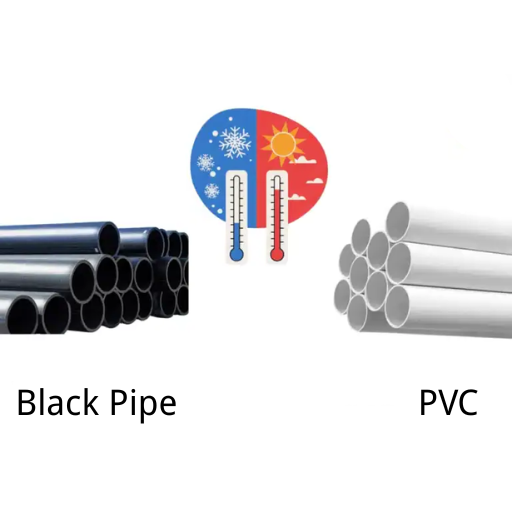
Black pipe and PVC differ primarily in material composition, strength, durability, corrosion resistance, temperature tolerance, weight, cost, and applications.
Material Composition and Properties
The properties of black pipe and PVC differ in their chemical compositions, offering distinct features that influence their various user applications. The black (BS) pipes are made of steel and therefore have a high level of pressure tolerance. Their tensile strength is above average. Above all, one significant advantage being the temperature and pressure at which it operates. Despite the above benefits, both black pipes have ease of use, the black ones have low to moderate corrosion, while the pipes are relatively heavier as compared to the PVC. PVC, while the opposite performs, the plastic properties provide it with expected lightness and thermoplastic resistance at a price that is affordable in its strongest points. PVC has a slightly stronger ideal for light and medium commercial or household usage.
Material Differences: PVC vs. Black Pipe
PVC and black pipe differ in their chemical composition and intended applications. Black pipe can be made of steel and is characterized by the high pressure, its great strength, which allows it to carry gas or to have industrial applications. However, this is steel we are talking about I think over time when the pipe rusts, it becomes very easy to kill. Unlike PVC, it was created with polyvinyl chloride supplemented with a plasticizer. Plastic adds cost elasticity to the material. With its increased pliability, PVC is ideal for residential use and low-pressure applications. Plumbing, sewage, and irrigation are perfect for the material.
Durability and Strength Comparisons
Black Pipe Durability: The ability to withstand wear and tear and last a long time is often a key factor in determining whether to choose black pipe or PVC for a given environment. For industries, black pipe is known to protect against high amounts of physical stress. The pipe is also known for its ability to withstand high pressures easily and is often used in settings that carry either gas or liquids. On the downside, black metal usually rusts, and regular maintenance is required, including the application of a protective coating; failure to do so may result in the environments where black pipe is installed collapsing. It is also quite heavy to deal with during installation.
PVC Durability: Polyvinyl chloride, commonly referred to as PVC, is the material that PVC represents. One of the advantages of PVC is that it does not require excessive labor and is relatively inexpensive to install. Lower amounts of resources are also enough for the production of the material. Such is the ideal material for use in plumbing, agriculture, and municipalities in low stress and low-pressure applications. However, being plastics, there is a limited amount that can be done. PVC also lacks resistance to chemicals, and as such, there are limited applications in which PVC can be used at lower temperatures.
Heat and Chemical Resistance
Materials need to be correlated with the challenges they will face in high-temperature domestic and industrial applications. In some cases, when chemicals are in use, materials, and for the transport of raw materials, this process must be conducted at an appropriate temperature when using a specific material.
The black (BS) pipes out of carbon steel offer better thermal stability — in fact, they can be used to transport products that are hotter than 400°F. However, since they do not have chemical resistance, a coat needs to be applied. On the other hand, PVC has a working temperature of approximately 140°F and, as a result, lacks high-temperature resistance due to potential deformation. Additionally, PVC can be exposed to various chemicals, including acids, bases, and salts. Additionally, its inertness and zero reactivity make the material suitable for transporting corrosive materials at low pressure, even at standard operating temperatures.
Cost-Effectiveness and Installation
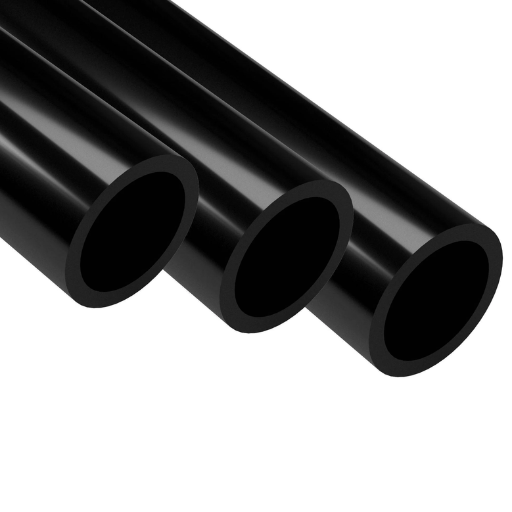
PVC is generally more affordable, lightweight, and easier to install compared to black pipe, which is more durable and suited for high-pressure applications but requires more labor-intensive installation.
Cost Analysis of Black Pipe vs. PVC Pipe
The initial cost and ease of installation makes PVC pipe highly cost-effective compared to black pipe. It is commonly accessible and is often used in projects that have limited resources and lower requirements for longevity and pressure. In contrast, black pipe comes with hefty initial costs and requires extensive manual labor for installation, which includes cutting and threading various parts that need to be separated for turning.
However, because of its durability and highly effective pressure handling, black pipe often results in lower long-term replacement and maintenance costs, making it the go-to option in the majority of situations involving heavy load or high-pressure valves. The choice between PVC and black pipes for a specific application should be made based on several project requirements. The entire project’s requirements and the system’s level of exploitation, including its long-term performance, should be a deciding factor when deciding to purchase one of the pipes.
Installation Considerations for Each Type
- Material Compatibility – It is vital to search for an appropriate material that should be able to withstand specific conditions, such as temperature, chemical exposure, and pressure.
- Threading and Sealing: Threading is one of the simplest technologies used in many connections. It is essential to use the right amount of sealing tapes and compounds so that to ensure there is no leakage.
- Corrosion Armoring – The area where the pipes are to be installed should be surveyed to determine if extra corrosion armoring is required, particularly for black pipes in heavily corrosive or high-moisture environments, such as those involving galvanized metals.
- Handling and Weight: One should consider heavier handling for black pipes compared to those made from galvanized metals, and an undertaking may require added support or a special tool.
- Code Compliance – It is essential to confirm that the pipes chosen meet the established standards for construction, as well as local regulations. The verification can specify the particular standards for applications, such as plumbing, gas distribution, and even structural.
Long-Term Maintenance Costs
With an emphasis on future maintenance expenses, the use of PVC piping is generally more financially feasible than using black pipe. PVC piping can withstand and repel immediate or long-term exposure to and from corroding agents, degradation, and deterioration, easing off the maintenance burden. In contrast, black pipes, due to their chaotic and stress-inducing rusting, especially in highly humid environments, require continuous coping mechanisms, as the pipes are prone to structural weakening and leaking. PVC piping may have variable cost impending, but with the less support required network and coupled with the lower maintenance burden, PVC is generally more cost-effective in conjunction with the particular and highly dependent system requirements.
Applications and Suitability
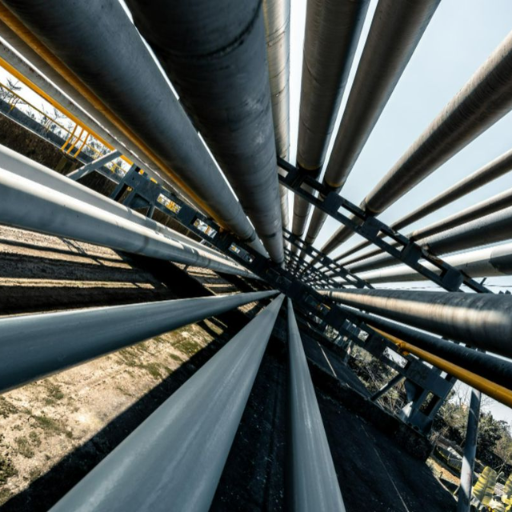
PVC pipe is highly compatible for cold water supply, sewage system, and chemical transportation systems as it can protect against corrosion and chemical degradation. In residential, commercial, and industrial settings, PVC pipe can be used in systems that use lightweight materials and materials that are not subjected to high temperatures or high levels of heat as well as high pressure. It is less useful in disposing of gas and other industrial fluids and materials but in such cases black pipe is used along with PVC piping. The type of piping to be used will depend on the project’s specific operational requirements, environmental conditions, and pricing.
Best Uses for Black Pipe in Industrial Settings
Black pipe is primarily used in cases where it must remain operational in very harsh conditions such as high heat, pressure, and cold. This is why black piping is mostly used in industrial operations where it must transport gas like propane and natural gas, while being sterdy enough to not develop internal fatigue from the corrosive action of the gasses. In addition, black piping is named for its prefered use as part of a building’s fire suppression system, since it is not bothered by the high temperature of the water (again, with gas protection). Also, factories use black piping to transport steam and hot water to heating systems, so it must be resistant to temperature (as a rule, highly high to both) and pressure (as much as very high) for a long period of time – and black piping is ideal for this. It is marked by a great efficiency and is not a budget pain every few months for aggressive obligatory maintenance.
Applications Suitable for PVC Pipe
- •
Plumbing Systems – Most plumbing systems, whether for residential or commercial purposes, extensively use PVC pipes to supply water distribution and prevent corrosion. The installation is quick and easy. - •
Irrigation Systems – Farmers and gardeners can easily use PVC pipes to water crops and gardens more effectively thanks to its availability and efficient water supply methods. - •
Electrical Conduits – For offering Physical security, PVC serves as a protective cover for electrical wiring and prevents damage. - •
Sewage and Waste Disposal – It is used in managing domestic waste and water supplies in sewage and wastewater management for its resistance to corrosion - •
Ventilation Systems – This is used to supply air and for the exhaust ducts in HVAC systems as it provides durable air and is easily customizable
When to Choose ABS or PVC for Plumbing
In the case of plumbing work, I am presented with two reliable options: ABS and PVC. Depending on the constraints and requirements of the given project and its circumstances, the correct selection must be sourced from either of the two. For instance, ABS is known for its range of support and temperature resistance, which is the primary reason it is used in colder conditions and outdoors. In contrast, the PVC option is much more rigid along with resistance to UV light exposure which means that it is suitable for indoor uses or areas with a lot of direct sunlight. In addition, PVC provides better sound insulation compared to ABS, and hence is chosen in environments that require sound elimination. Selecting the correct material is a crucial and straightforward decision that the environment’s requirements can determine.
Safety Standards and Industry Trends
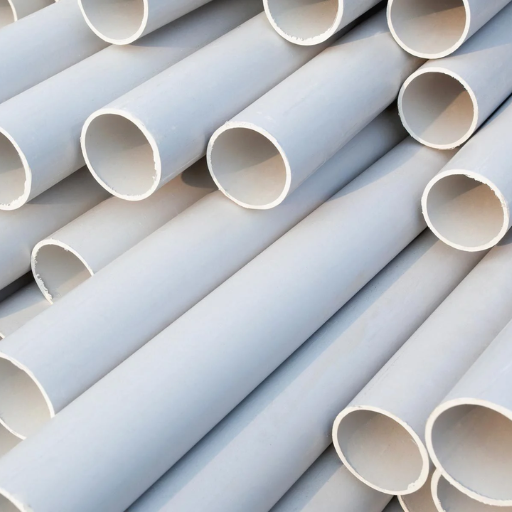
Several factors are involved in the adequate consideration of emerging technologies and established safety standards in the plumbing industry. PVC is also extremely cost-effective in terms of maintenance. In the field of plumbing, the entire industry and, more specifically, the potable water and general piping systems, black pipe and PVC are certainly functional. This enables the consumer to choose between black pipe and other options that are available in the market. On the other hand, the attention for the construction industry, when it comes to applications involving technology, is unsurprisingly focused on the black pipe, which has a widely known reputation for being able to withstand any challenge it is confronted with. By clearly defining the intended use of black pipe, waste resulting from indiscriminate use of resources will certainly decrease. Which is undoubtedly a plus for the two fields.
Understanding Safety Standards for Black Pipe and PVC
To ensure safe use, understanding the compliance of safety standards for black pipe and PVC with the company’s laws is essential, which enables the identification of the relevant safety standards to consider. For gas or oil lines, the seamless and the welded steel pipe are preferred ones, and their compliance with the ASTM(American Society for Testing and Materials) helps the buyer to select the best product that suits the intended use. This makes it possible for the purchaser to get the best product that suits the intended use during the existing. And the entities associated with the product ensure that the user adheres to the conditions within which the black pipe is supposed to operate.
Recent Trends in Pipe Selection and Usage
Hard use and safe use of industry equipment and materials continue to align to technological advancements and to the set limitations of available governing standards. As an example, they are now using HDPE Polymer tubes. These new tubes to the industry are not only resistant to corrosion but also more environmentally friendly and cost-effective. In the making of the tubes they are adding the recycled materials to reduce the environmental effects. The new HDPE tubes being used have sensors that enhance the monitoring system, allowing machines to operate while minimizing ecological emissions.
Expert Insights on Material Selection
Emerging construction technologies and the construction sector itself are entailing the application of advanced material selection technologies. Proper proliferations in pipe technology have been gearing toward as of late have included how advanced materials have become and the plastics used in advanced material safety with PVC. New composites of steel are also being put into use. Redistributions of old and new steel materials containing plastics (HDPE, uPVC, and PVC) are also being mixed adequately for all piping applications. This is already being deployed in the modern piping and construction discipline to fulfill pipe construction requirements.
Reference Sources
-
Difference between black and white PVC pipe – This source discusses heat resistance, weather resistance, and other properties of black PVC pipes.
-
What is black PVC pipe used for? – This article explores the applications of black PVC pipes in various fields like drainage, sewage, and industrial transportation.
-
What is Black PVC Pipe Used for? Differences from Other Pipes – This source highlights the strength of black PVC pipes and their common use in underground lines.
- Top Black Steel Pipe Supplier In China



